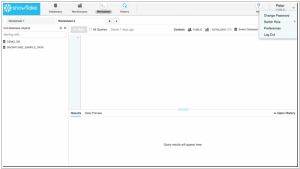Snowflake vs Vertica
July 21, 2023 | Author: Michael Stromann
7
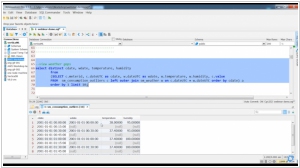
Vertica offers organizations new and faster ways to store, explore and serve more data. Vertica lets organizations store data in a cost-effectively, explore it quickly and leverage well-known SQL-based tools to get customer insights. By offering blazingly-fast speed, accuracy and security, it offers operational advantages to the entire organization.
See also:
Top 10 Big Data platforms
Top 10 Big Data platforms
Snowflake and Vertica are both popular data warehousing solutions, but they have distinct differences that cater to different user needs. Snowflake is a cloud-based data warehousing platform known for its scalability, elasticity, and ease of use. It separates compute and storage, allowing organizations to scale data processing independently. Snowflake is fully managed, eliminating the need for manual cluster management, and its pay-as-you-go pricing model is cost-effective for businesses with varying data processing needs. On the other hand, Vertica is an on-premises data warehousing solution with a focus on high-performance analytics. It is optimized for massive data volumes and complex queries, making it suitable for organizations with specific on-premises infrastructure requirements and data analytics needs. Vertica's columnar storage and compression techniques allow for rapid data analysis and retrieval.
See also: Top 10 Big Data platforms
See also: Top 10 Big Data platforms
Snowflake vs Vertica in our news:
2021. Cloud security startup Lacework has raised $525M
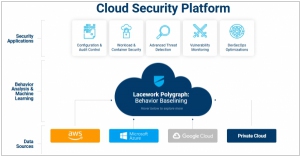
Lacework, a cloud security startup that offers a solution built on the Snowflake platform, has raised $525 million in its Series D funding round, bringing its total funding to over $1 billion. The company reported a remarkable 300% year-over-year revenue growth for the second consecutive year. Investors and customers have shown significant interest due to the comprehensive nature of Lacework's security solution. It enables companies to securely build in the cloud and covers multiple market categories to meet diverse customer needs. This includes services such as configuration and compliance, infrastructure-as-code security, vulnerability scanning during build time and runtime, as well as runtime security for cloud-native environments like Kubernetes and containers.
2016. HP to sell its software business to Micro Focus
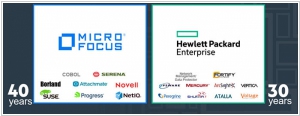
Hewlett-Packard Enterprise (HPE) has reached an agreement to sell its software business to Micro Focus in a substantial $8.8 billion deal. One significant component of HP Enterprise software, Autonomy, constitutes a quarter of the total value and was initially acquired by HP for $11 billion in 2011. The software business being sold also encompasses Mercury Interactive, which HP acquired for $4.5 billion in 2006, Vertica for $320 million, and ArcSight for $1.5 billion in 2010. HPE's Chief Executive, Meg Whitman, intends to shift the company's focus towards other sectors such as networking, storage, and technology services following its separation from computer and printer manufacturer HP Inc. in the previous year.
2014. HP plugs the Vertica analytics platform into Hadoop
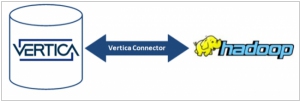
HP has unveiled the introduction of Vertica for SQL on Hadoop, a significant announcement in the world of analytics. With Vertica, customers gain the ability to access and analyze data stored in any of the three primary Hadoop distributions: Hortonworks, MapR, and Cloudera, as well as any combination thereof. Given the uncertainty surrounding the dominance of a particular Hadoop flavor, many large companies opt to utilize all three. HP stands out as one of the pioneering vendors by asserting that "any flavor of Hadoop will do," a sentiment further reinforced by its $50 million investment in Hortonworks, which currently represents the favored Hadoop flavor within HAVEn, HP's analytics stack. HP's announcement not only emphasizes the platform's interoperability but also highlights its capabilities in dealing with data stored in diverse environments such as data lakes or enterprise data hubs. With HP Vertica, organizations gain a seamless solution for exploring and harnessing the value of data stored in the Hadoop Distributed File System (HDFS). The combination of Vertica's power, speed, and scalability with Hadoop's prowess in handling extensive data sets serves as an enticing proposition, potentially motivating hesitant managers to embrace big data initiatives confidently. HP's comprehensive offering provides a compelling avenue for organizations to unlock the potential of their data, urging them to venture beyond their reservations and embrace the world of big data.
2014. HP Vertica introduces SQL-on-Hadoop
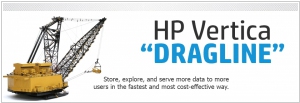
HP's Big Data platform, Vertica, has recently undergone an update to its new version, 7.1, codenamed "Dragline." This release brings forth several enhancements including SQL-on-Hadoop capability, improved access control, optimized backups, expanded support for Flex Zone data formats, dynamic resource management, and more. The standout feature in this version is the ability to execute SQL queries directly on Hadoop Distributed File System (HDFS) without the need for connectors. However, for faster and in-depth analytics, the data would still need to be moved into Vertica. It is worth noting that, as mentioned in a previous post about SQL-on-Hadoop, MapR and Vertica can be operated on the same hardware, leading to cost savings and improved integration between the two platforms.

